'Sometimes I still struggle with the idea of it all' - What it's REALLY like to have a child with autism
One mum shares her honest account of what life is like with an autistic child...
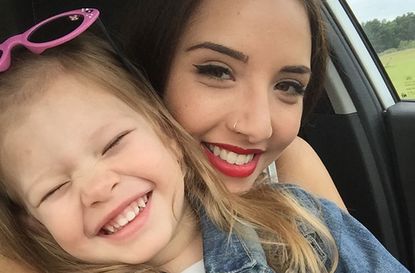
Autism has been a big talking point in the last year. With BBC One series The A Word bringing the condition to everyone's living room and even dramas such as Holby City introducing autistic characters, autism is on everyone's mind.
With recent developments in medicine, therapy and how schools manage autistic pupils, there has been an increase in successful diagnosis and helping children where necessary.
But for parents of autistic children, day to day life can remain a struggle - constantly learning and adapting to their child's needs - even if that means the smallest of adjustments that may seem insignificant to others.
Mother-of-one Tami Briesies shares her daughter Isla's story, in the hope she can raise awareness and shed a light on the everyday realities of having an autistic child
When you're expecting a child, you often think things will be perfect after they're born - I certainly did.
I planned that I would get my daughter Isla to try fruits and various veg of every type of texture, as soon as she hit six months, take her to playgroups, enrol her into ballet and gymnastics.
And I absolutely, 100 percent thought she would hit all of her milestones without any hesitation. Fast forward one year, and nothing seemed as it was 'supposed to be'.
GoodtoKnow Newsletter
Parenting advice, hot topics, best buys and family finance tips delivered straight to your inbox.

Before the diagnosis
Isla didn't sleep, she refused to eat; in fact, I spent the next year trying absolutely everything to get her to try food but she flat out refused and would only drink milk.
More heartbreakingly, she didn't talk. Again, for the next year or two, I was told 'perhaps she's a late developer', 'my sister's son didn't start talking until he was five, so I'm sure it's fine!' but something was wrong.
Perhaps wrong isn't the right word – it just didn't feel right. I had a niggling thought in the back of my mind, telling me that this could only be one thing: 'The A word'. But I couldn't bear to even consider it, and I won't lie – sometimes I still struggle with the idea of it all.
Isla does things you wouldn't consider to be an autistic trait, for example, she's so affectionate, how could that be possible?
Six months since Isla's diagnosis we've made every effort to educate ourselves around the subject.
The more I've done this, the more my understanding has deepened for people who might not realise that the small things are very big things for us.
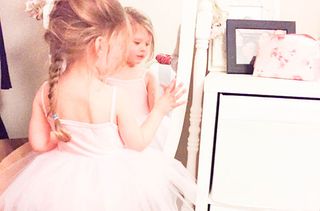
How we deal with everyday life
Things that we take for granted (such as understanding body language and metaphors, or being able to touch particular materials without feeling stressed) can be confusing and alienating to a person with autism.
For Isla, this can often be anxiety inducing. Sometimes, she gets upset about the curtains not being closed, or the lights not being turned off.
Sure, she may be three and things will always be the worst thing in the world to such a small child, but often, this could reduce my little girl down to a complete and utter meltdown. I can't imagine the stress that she goes through day to day. Luckily, like me, Isla is very keen on shopping. She's the first person to get her shoes on when I say - shall we go to the shops? She will happily stalk the stores with me. In that sense, she's totally accepting of other people, and big crowds don't phase her.
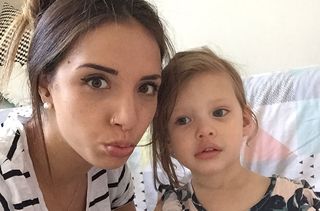
Play
Isla loves numbers and letters. Lining her flash cards up is something she thoroughly enjoys, and she has a huge love for certain textures. Particularly outside, she has developed a huge interest in grass, and feeling the leaves on the trees. Her sensory processing for touch is over sensitive and her way of understanding it is with her mouth. Isla is a kinaesthetic learner - not much about imaginative play interests her, although her understanding of what a toy doll is, is there. This is where messy play is a huge part of our lives.
In our house, we use uncooked rice for play, dying it different colours to identify them. We do the same with spaghetti and make every effort to try finger painting every few days to reduce Isla's fear of runny materials.
Sleep
Sleep, well, is a different story. Only recently has it become easier. The past three years have been stress inducing for us on a whole new level because she just refused to sleep.
I tried everything, from crying it out, taking her round in the car at 2am to get her down, letting her lay on me whilst I stroked her hair, swaying her, bouncing her… the works.
It's safe to say, I am exhausted, but we have found a routine that works for us. The only catch is that under no circumstances is she able to sleep during the day, no television after six, no juice after lunch and we use epsom salts in her baths to relax her and it's worked an absolute treat.
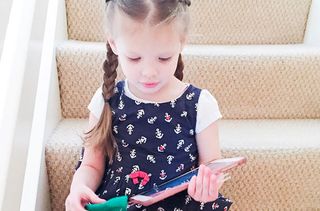
Food
Food was never an issue for Isla up until she was about one. I don't know what happened but after that, things were… difficult. Like I mentioned at the start, milk was the only thing she would accept and it took a lot of patience and testing to even get her to have a sandwich.
Now, things have taken a positive turn and Isla does enjoy Marmite sandwiches, sausages, cheese and ham quesadillas and chicken wrapped in bacon with barbecue sauce… boy does she love barbecue sauce.
Travel
Isla has only ever flown to South Africa, and that was when she was six months old. Honestly, the only word I could describe it as is 'hell'. I know flying with a baby is always a task, but nothing settled her, she didn't sleep the 12 hours there and the 12 hours back, and she cried a lot. I'd be lying if I said the experience didn't traumatise me, and as a result I've not dared take her out of the country since. Upon learning of her diagnosis, I did a lot of research around travel and many people suggest going on short haul flights first to reduce the anxiety of the unknown for the children with autism.
You need to prepare them by explaining where you're going and how long for a few days beforehand to get them to understand that it won't be a horrible experience. As a result, we've decided that we'll take the plunge and visit a destination an hour away next year. Yes, I'm scared and I'm nervous about what other people will think when we board, but at the end of the day, we get to spend time together as a family, and that in itself is a thousand times worth it and I'm a lot more concerned about how Isla will be feeling throughout all of it to even consider my own feelings on the subject.
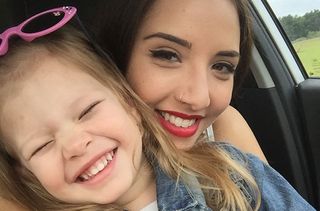
Speech
This is the one thing, out of everything, that I still struggle with. It's really difficult for me when I see children similar in age to my daughter stringing together full sentences with complete understanding. I truly long for Isla to just say 'I love you Mummy' or any other bunch of words. Don't get me wrong, she knows an array of words and since the speech therapy, there's been a huge improvement. Isla will now often use two words like 'new shoes' or say the last word of your sentence, which is more exciting than I could ever imagine.
Many autistic children are developmentally delayed at pre-verbal communication stage, which means they are unable to use developed speech until they're much older, and some may not ever use verbal communication methods.
We do often use objects of reference to communicate with Isla for little things such as breakfast, to use the toilet and brushing teeth.

The future
It's difficult for me to really give advice on this subject. I only know how it's like from my point of view. You could read all the blogs in the world, but at the end of the day, every child with autism is different.
What might work for us may be the worst situation for you and until you're in that position you'll never really know how it will be – I wish I could have silly conversations with Isla or have tea parties with her teddy bears, but even having her make eye contact with me when she points to a number and says it makes me so proud to have such an inquisitive, ridiculously smart little girl.
If you're looking to gain more knowledge around strategies and approaches, hear professionals speak on the subject, Tami recommends The Autism show in London on 17-18 June and more resources for messy play activities to try with your children.
Trusted, informative, and empathetic – GoodToKnow is the ultimate online destination for parents. At GoodtoKnow, our mission is 'simple': we're trying to make sense of parenthood. On the site, you'll find everything you need for a happy, healthy family life. Our huge archive of content includes more than 18,000 articles and 1,500 how-to videos. These include expert-backed advice features on parenting, dealing with relationship changes after having a baby, self-care for mums and managing your family finances. We also feature tried-and-tested product reviews and buying recommendations for every stage of family life - from prams and Moses baskets to birthday gifts and top toys.
-
 Why do I crave sugar? Causes of sugar cravings and how to stop them
Why do I crave sugar? Causes of sugar cravings and how to stop themIf you're someone who suffers from sugar cravings you'll know how hard it is to give up the sweet stuff. But you're not alone.
By Debra Waters Published
-
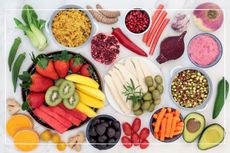 Low sodium diet: the benefits of reducing salt and what foods to eat
Low sodium diet: the benefits of reducing salt and what foods to eatBy Emily-Ann Elliott Published